See what policymakers and more are saying about a potential federal staffing mandate for nursing homes.

“[W]e do not agree that we should establish minimum staffing ratios at this time. As discussed in the preamble to the proposed rule, this is a complex issue and we do not agree that a ‘one size fits all’ approach is best.”
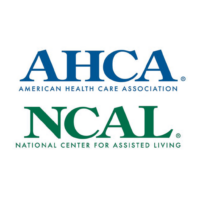
“If CMS proceeds with this Proposed Rule, it will severely limit access to care for our nation’s seniors and individuals with disabilities. Without a pipeline of new caregivers and resources to recruit, nursing homes will be forced to downsize in order to meet these requirements or close entirely.…”

“While I appreciate the intention of the proposed rule resulting in increased quality of care for residents served in nursing facilities, I have concerns with the unintended consequences a rule such as this may have on a rural state like Kansas… I would respectfully request that you delay implementation of this rule so that we can address the root problem and build a foundation that can sustain our mutual goal.”
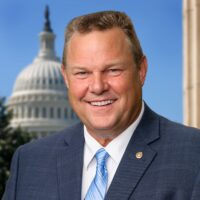
“In many parts of the country, America’s long-term care facilities are facing severe workforce shortage issues that are harming access to critical care for our nation’s seniors…With this in mind, we are deeply concerned that now is the worst possible time for the United States to establish the nation’s first federal staffing mandate for long-term care facilities.”
“This is not only unrealistic, but it also threatens to unravel the work we have done, while harming the seniors, elderly, and disabled it’s designed to help. We urge you to reconsider your commitment to unfunded mandates and instead enter into a genuine state-federal dialogue on how best to serve residents of long-term care facilities in our states.”

“Multivariate models show that quality and safety, as measured using claims, resident assessments, and health inspection data, increase with staffing levels, with no obvious plateau at which quality and safety are maximized or “cliff” below which quality and safety steeply decline.”

“[The Office of] Advocacy is concerned that this rule may have unintended consequences that negatively impact long-term care facilities and other related providers, the vast majority of which are small businesses. These impacts are particularly troublesome at a time when there is a real shortage of qualified nurses and other nursing home caregivers in the United States, especially in rural areas.”
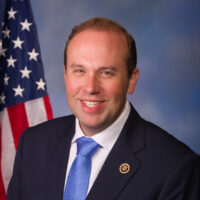
“This one-size-fits-all, unfunded mandate will jeopardize access to care for the 1.2 million Americans living in more than 15,000 certified nursing homes nationwide – especially those who reside in rural and underserved areas.”
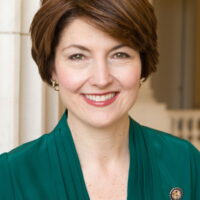
“This minimum staffing rule would set unrealistic staffing threshold…We all believe in access to high quality care, but proposed requirements that are untenable for four out of every five nursing homes do not represent a serious solution. And those who rely on skilled nursing care deserve better than a proposal that could dramatically curtail their care.”
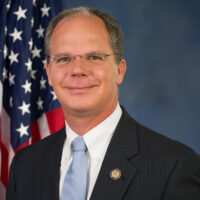
“Nursing homes would be forced to stop accepting new patients, as well as cuts to home and community-based services. This would significantly undermine the bipartisan work this committee has undertaken for decades to improve access to care. I call on the Biden Administration to retreat from these misguided policies.”

“You can create a mandate to create more nurses, it doesn’t mean we can write a law that says there’ll be 75,000 more nurses, it will not create 75,000 more nurses. It’s just not how laws work. And it’s not how nurses work. It’s not how a labor market works.”
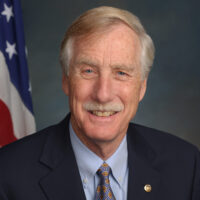
“Should this proposed rule move forward, it is imperative that the regulations placed on facilities do not inadvertently lessen aging veterans’ options for care. We recognize the importance of high- quality service, but as drafted and without revisions, this proposal may have unintended consequences that will close nursing homes.”
“Instead of moving forward with a regulatory mandate that would exacerbate staffing shortages, the Centers for Medicare and Medicaid Services (CMS) should collaborate and work alongside nursing homes across the country to find innovative solutions to improve the provision of care for seniors and other vulnerable populations.”
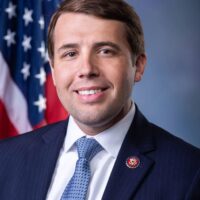
“Instead of burdening nursing homes with new regulations during an ongoing workforce shortage, we should be focused on providing long-term care facilities with the resources and funding to stay open, recruit and retain a strong workforce, and provide residents with the best care possible.”
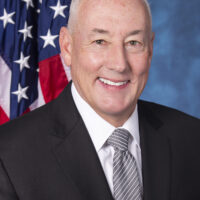
“At a time when nursing homes are already experiencing healthcare worker shortages and financial hardships, CMS and the Biden Administration should not be implementing a regulation that would only exacerbate this issue.”
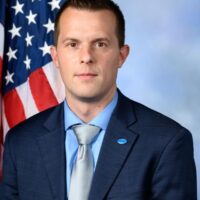
“There are workforce shortages all across rural America and healthcare workers are no exception. I’m committed to working with my colleagues to find ways to prevent otherwise avoidable closures of nursing homes in Maine.”
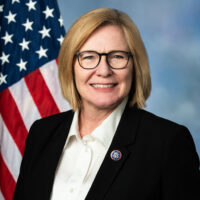
“I am again encouraging the administration to reconsider its rule that could force nursing homes in rural Minnesota to close their doors. Further closures of facilities in rural areas would leave seniors with little to no options for care. That is unacceptable.”

“The unique needs and challenges present in regional and local workforces show us that one-size-fits-all mandatory minimum staffing standards are not appropriate policy.”

“At a time when rural states like Montana are experiencing challenging staffing shortages, it’s completely unacceptable for the Biden Administration to impose a one-size-fits-all staffing mandate that will only make things harder on rural nursing homes.”

“We are concerned that in proposing a one-size-fits-all numerical staffing threshold, CMS would remove the role of clinical judgment in staffing facilities, and inadvertently create patient access challenges across the health care system. Implementing a numerical staffing threshold could drive nursing homes to further reduce capacity or close in order to meet the requirements.”
“This is not only unrealistic, but it also threatens to unravel the work we have done, while harming the seniors, elderly, and disabled it’s designed to help. We urge you to reconsider your commitment to unfunded mandates and instead enter into a genuine state-federal dialogue on how best to serve residents of long-term care facilities in our states.”

“We are requesting the Administration to withdraw this archaic, unfunded health care policy and instead focus on meaningful, supportive ways to grow and retain the nursing home workforce. At the same time, LPNs should be recognized and regarded with RNs as nurses—that’s what they are.”

“I have an ongoing concern about how these policies are going to affect low-volume facilities, rural facilities.”

“This is a classic unfunded mandate and unfunded mandates just are fraught with all sorts of bad problems … [The rule would lead to] unintended consequences … that we would need to be aware of, monitor for [and] guard against.”

“This was not a ‘bad apples’ problem, with low-staffed nursing homes having all the outbreaks and deaths. The lesson there is, staffing, as important as it is, would not prevent the next pandemic. It would not have prevented the last one.”

“Recommending a staffing requirement that something like 80% of facilities cannot comply with is I think best described as the definition of policy insanity.”

“In my district in Washington state and all across the country, we continue to face a severe shortage of health care workers that directly impacts patient care.There’s a whole cascading effect and so ensuring that we have the workforce that meets the needs of our growing senior population is critical…So, our state is already trying to address some of these concerns around proper staffing levels and adequate patient care and it remains a challenge.”

“…Advocacy is concerned that this rule may have unintended consequences that negatively impact long-term care facilities and other related providers, the vast majority of which are small businesses. These impacts are particularly troublesome at a time when there is a real shortage of qualified nurses and other nursing home caregivers in the United States, especially in rural areas.”
“The exclusion of counting LPNs with RNs demonstrates just how deeply flawed this proposal is. More importantly though, a one-size-fits-all staffing mandate such as the proposed hours per resident day (HPRD) is a simplistic, outdated approach that does not consider the interprofessional collaboration model nor the need to make staffing decisions based on each unique resident and their care plans.”

“My district is a dense urban area that has multiple [long term care] facilities. I am concerned that this proposal may make it harder for facilities in areas like my district that try in good faith to [qualify] for this exemption. And without the ability to get that exemption, it may lead to a facility closure that for many families in my district, would be an extreme hardship to try to locate a new facility that meets the needs of their family member.”

“While the CMS rule aims to improve the quality of long-term care for veterans by increasing staffing requirements, this one-size-fits-most policy could cause facilities in rural areas to shut down.”

I have serious concerns that the Biden Administration’s one-size-fits-all staffing mandate will be unworkable for rural nursing homes. While well-intentioned, the burdensome requirement fails to address concerns I’ve heard from local providers in Montana.
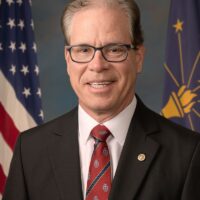
Every American deserves to live their golden years with dignity and respect. The priorities I have introduced for the Older Americans Act reauthorization ensure essential services are delivered efficiently for older Americans so they can continue to lead healthy, productive, and meaningful lives independently or in care homes.
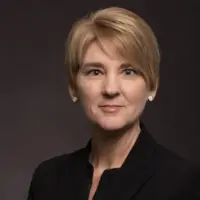
CMS’ one-size-fits-all minimum staffing rule for nursing homes creates more problems than it solves and could jeopardize access to all types of care across the continuum, especially in rural and underserved communities that may not have the workforce levels to support these requirements.

NRHA appreciates and concurs with CMS’ commitment to improving resident safety in nursing homes but is extremely concerned about the consequences of this rule on rural beneficiary access to care.

In the wake of historically high inflation, the Biden administration has recklessly ruled to increase overtime pay — forcing small businesses and non-profits to scramble to make ends meet. We should be supporting these entities that are the backbone of the American economy, not making it harder for them to keep their doors open.

When the free market sets the price of labor, opportunity and prosperity are the result. When the federal government sets the price of labor by one-size-fits-all mandates, small businesses are forced to fire employees and close shop to make ends meet. We’re leading a challenge to this new Biden rule because this White House’s out-of-touch economic policies have been an unparalleled disaster for American wages.